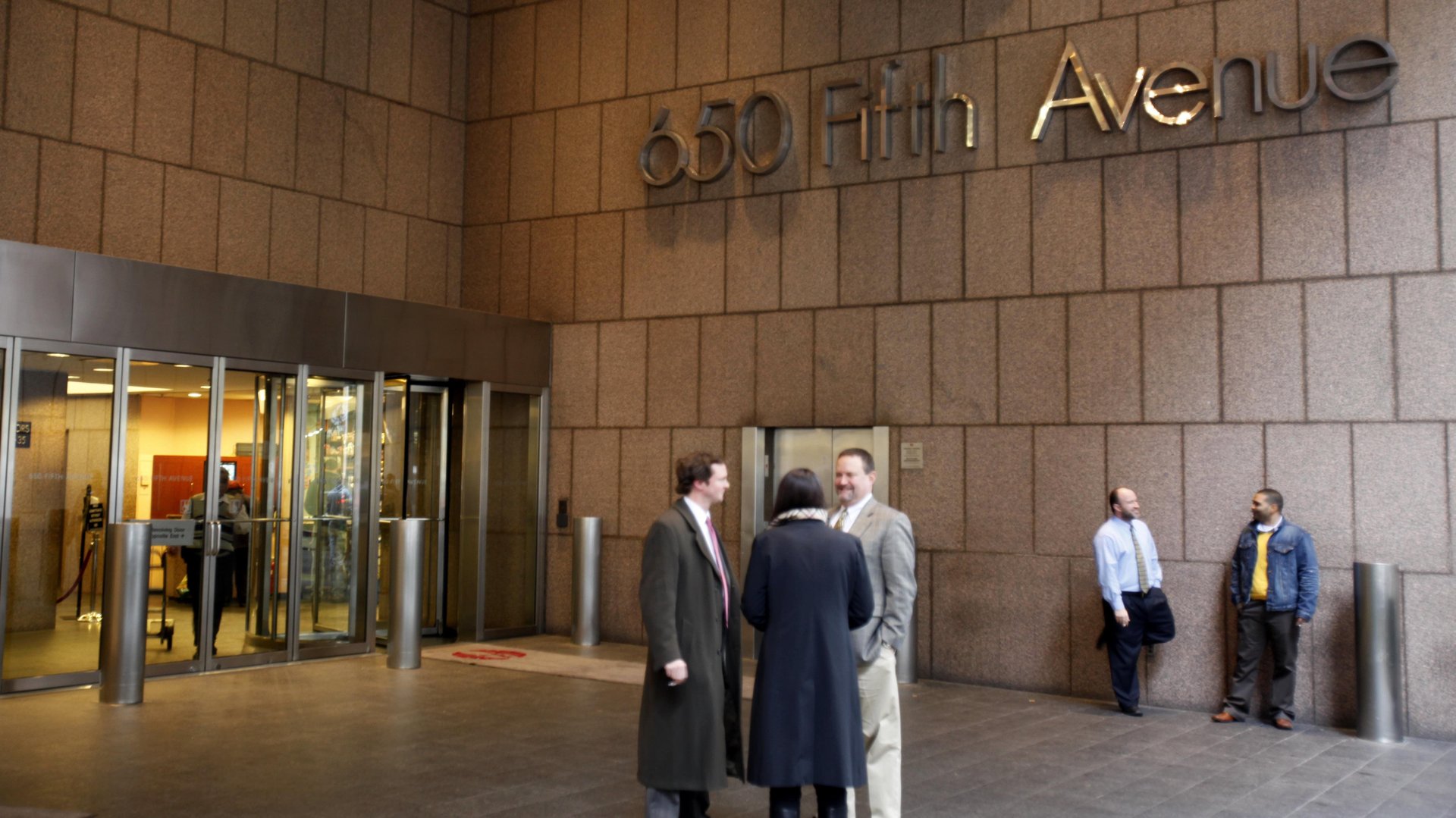Why Iran got away with using a $500 mln New York skyscraper as a secret slush fund for 22 years
The skyscraper in the heart of Manhattan had been violating US sanctions since 1995. Its tenants—who have included Juicy Couture, Godiva Chocolate, and Starwood Hotels—have been paying millions of dollars a year to, ultimately, the Iranian government.


The skyscraper in the heart of Manhattan had been violating US sanctions since 1995. Its tenants—who have included Juicy Couture, Godiva Chocolate, and Starwood Hotels—have been paying millions of dollars a year to, ultimately, the Iranian government.
“Through all the efforts to sanction and isolate Iran, a state sponsor of terrorism, the owners of 650 Fifth Avenue gave the Iranian government a critical foothold in the very heart of Manhattan,” acting US attorney Joon H. Kim said yesterday in a statement.
However, despite first filing a lawsuit in 2008, only yesterday did the US government win the right to seize the 36-story building, which is valued somewhere between $500 million and $1 billion.
How did Iran manage to evade the authorities for so long? In two words: shell companies.
The building was nominally owned by the 650 Fifth Avenue Company—a shell corporation set up in 1989 to avoid paying federal taxes on the rent it was raking in. That shell company was then owned by another shell company registered in Jersey, a tax haven and UK crown dependency. Through this web of cut-outs, rent from the building was then channelled to Bank Melli—which is owned by the Iranian government, the court determined.
Even though it had been set up to avoid taxes, the structure then came in handy for keeping ownership concealed from the US government once sanctions were put in place. Proving in court that an Iranian bank was the ultimate beneficiary took an investigation involving no less than five institutions: the FBI, the Internal Revenue Service, the New York police, the Department of Justice, and the Manhattan district attorney’s office. The court decision this week was the biggest terrorism-related civil forfeiture in US history.
Efforts to stop to nefarious actors secretly setting up US companies have failed time and again in Washington. But a bipartisan set of lawmakers hopes that by highlighting the risks to national security, their latest effort to pass a law forcing shell companies to disclose their real owner will succeed this time. In an interview with Quartz this week, New York congresswoman Carolyn Maloney pointed out exactly this potential for using rent or earnings from US property to finance terrorism.
“How irresponsible do you have to be to not know who owns your properties?” she asked, the day before announcing her fifth attempt to pass a bill on the matter. “We had a bomb go off in my district on 23rd street [in Manhattan] maybe four months ago, and you wonder where they got the money from…the longer we wait to fix the the problem the more we put our country at risk.”
For Stefanie Ostfield, deputy head of the US office of anti-corruption NGO Global Witness, it’s a stark case of how the law allows unscrupulous actors to involve themselves in the US. “The fact that we allow individuals to hide behind US companies and not disclose who they are enables the Iranian government, or a terrorist network, or organized crime to hide [from law enforcement]…and potentially hurt US companies and citizens,” she said.